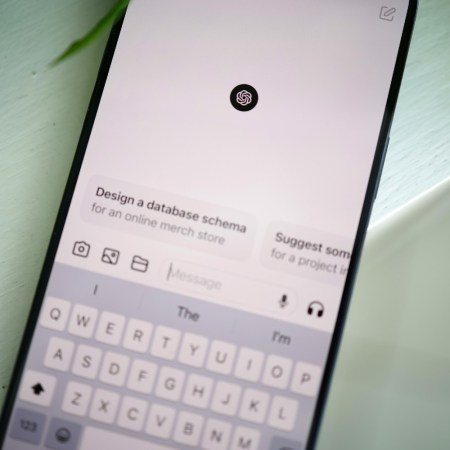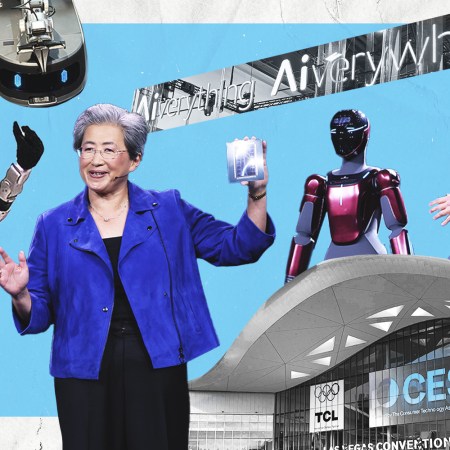We already know ChatGPT helps teenagers cheat on their English homework. But with the rise of AI bots designed to simulate human connection, fresh new concerns have bubbled up about whether chatting with AIs constitutes cheating on romantic partners. Some people say their AI companions may have actually saved their human relationships, while others worry the behavior could have devastating consequences for the future of intimacy.
In the growing debate about whether it constitutes infidelity, chatting with AI bots is often compared to watching porn. Getting off to photos and videos of performers isn’t typically considered cheating because it’s a remote fantasy with no physical connection. Jessica Leoni, resident sex and relationship expert for UK-based dating site Illicit Encounters, likens the sexual gratification derived from AI to watching porn rather than having a “full-blown affair,” because “this is AI and not a real person.”
But there are some core differences between porn and AI. For one, porn is a service that’s pre-packaged for viewer consumption, whereas AI chat bots are responsive and adaptive to user specifications. And lately, there’s been a surge of AI companies that allow users to design their own bots in their perfect image, one that behaves and thinks exactly how users want it to. So while the discovery that a partner secretly watches porn may be hurtful or might spark feelings of inadequacy, relationship counselor Peter Saddington recently told The Guardian that with an AI bot from one of those bespoke services, there is simply no competition. “You’re setting up something that’s totally perfect and unique to what you want” on an emotional level, he said.
Relationship therapist and member of the British Association for Counseling and Psychotherapy, Vasia Toxavidi, agrees that secret AI relationships are just that: relationships. Unlike porn, she says they can’t be rationalized as simple fantasies because they can take on much more human qualities. “This avatar becomes very personalized,” she told The Guardian. “Even though it’s not real, it can be cheating in the sense that you can be intimate.”
Have AI Bots Flooded Hinge?
Beware the inscrutable bioEven so, sometimes partners in long-term relationships just need an outlet, and an AI bot seems like the most convenient and least harmful choice. At Illicit Encounters, which is designed for married people seeking affairs, Leoni says she’s seen users “turn to AI Bots as sort of relationship therapy, a chance to unload and rant and rave without burdening a real human and not being judged,” she said in a recent interview with Wales Online.
Still, infidelity hurts the way it does, not because of the logistics or the format of the cheating. It hurts because of the secrecy, regardless of what a person did or thought about doing behind their partner’s back. It doesn’t matter that AI relationships can never be physically consummated; they can still carry the same potential for betrayal if perpetrated in secrecy.
Like with most other kinds of cheating, Saddington says AI infidelity often arises when something is missing from the human relationship. It’s easier to go online, he said, than it is to initiate a conversation about what you need more of, “and it allows you to avoid intimacy.”
In human relationships, acceptance of and interest in non-monogamy has soared in the last decade. The non-monogamous worldview tells us that it’s not only valid, but natural, to seek affirmation, support and gratification from sources outside your relationship, as long as you have the consent of your partner. So why should AI be any different? If you want to start a relationship with an AI, embrace a non-monogamous framework and discuss the parameters with your partner ahead of time. Because, of course, the line between non-monogamy and cheating is always that glittering, 14-karat golden rule: honesty.
The Charge will help you move better, think clearer and stay in the game longer. Subscribe to our wellness newsletter today.




















